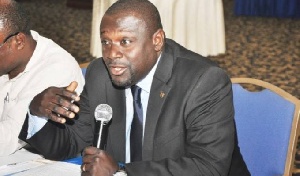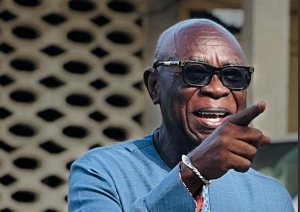A member of the ruling government and Member of Parliament for New Juaben South, Dr. Mark Assibey-Yeboah, has stated that the government’s priority in the first six months will be to stabilise the macro-economic environment.
“It is our desire to control inflation, our debt stock is growing; we can’t keep on borrowing, we have to restructure some of the debt so that it gives us some fiscal space to operate within,” told the B&FT.
“So, early days, we will be looking at restructuring the debt, trying to stabilise the currency.
At least, if it stays stable it helps in business planning and the cost of borrowing – interest rate – has been going up… so the main goal, initially, is to stabilise the macro economic environment.”
Akufo-Addo defeated John Dramani Mahama in elections last month and assumed office on Saturday, pledging to cut taxes to boost the ailing economy while protecting the public purse.
The New Patriotic Party (NPP) now makes up the majority in parliament, with 169 members as against 106 seats for the minority National Democratic Party(NDC).
President Akufo-Addo is seeking to act fast to deliver on his campaign promise to create jobs, restore rapid growth, build a dam in every village and a factory in every district if he is to satisfy an electorate eager for improved livelihoods.
“It is key for all others to kick in, the deficit was huge for 2016, the government part in an election once again, we are into the 9percent range, so all of these hasn’t given us enough space for us to start rolling out our ambitious programmes, so what we will do initially is to stabilize the macro economy then you create some space by restructuring your debt, then with that space you can start doing your programmes of 1 factory ,I village 1 dam, $1million for constituency and others.”
For the MP for New Juben, there is the need to change the law regulating the Ghana Infrastructure Investment Fund(GIIF), and applied to the needed areas. World Bank data reveals that Ghana’s economy grew by 4.9% during the first quarter 2016, higher than the 4.1% realised during the same period in 2015, supported by the strong services sector performance.
However, overall Gross Domestic Product (GDP) growth for 2016 could be below the 3.9% growth in 2015 due to production problems in the oil sector.
After lingering above 18%, the inflation rate fell to 16.7% in July 2016—the lowest since March of 2015, reflecting the stable cedi and the maintenance of the tight monetary policy stance.
The GDP growth rate is expected to reach around 7.5% by 2018, assuming that the fiscal consolidation programme remains on track and technical problems in the oil and gas sector are resolved.
Business News of Friday, 13 January 2017
Source: thebftonline.com
Stabilising macro-economy our main focus – Yeboah
Entertainment
















